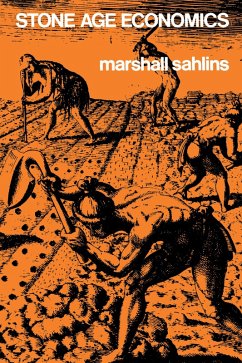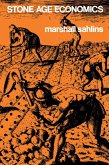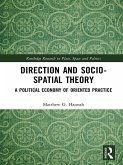A classic study of anthropological economics, which tackles the nature of economic life and how to study it comparatively.
Dieser Download kann aus rechtlichen Gründen nur mit Rechnungsadresse in A, B, BG, CY, CZ, D, DK, EW, E, FIN, F, GR, HR, H, IRL, I, LT, L, LR, M, NL, PL, P, R, S, SLO, SK ausgeliefert werden.
'Sahlins' forays into economic anthropology are full of interest.' - Cyril S. Belshaw, American Anthropologist
'The most sophisticated, extensive presentation, and argument in and about, the field of economic anthropology' - Walter C. Neale, Science
'This book is subversive to so many of the fundamental assumptions of Western technological society that it is a wonder it was permitted to be published. Calling on extensive research among the planet's remaining stone-age societies-in Africa, Australia and South-East Asia as well as anecdotal reports from early explorers, Professor Sahlins directly challenges the idea that Western civilization has provided greater 'leisure' or 'affluence,' or even greater reliability, than 'primitive' hunter-gatherers.' - Whole Earth Review
'So rich in factual evidence and in ideas that a brief review cannot do it justice' - E. Evans-Pritchard, Times Literary Supplement
'If our species is to survive, we're going to have to come up with a new economic discipline which starts from very different questions ... there is perhaps no single work of anthropology that so lends itself to this task as Stone Age Economics.' - David Graeber, London School of Economics, UK
'The most sophisticated, extensive presentation, and argument in and about, the field of economic anthropology' - Walter C. Neale, Science
'This book is subversive to so many of the fundamental assumptions of Western technological society that it is a wonder it was permitted to be published. Calling on extensive research among the planet's remaining stone-age societies-in Africa, Australia and South-East Asia as well as anecdotal reports from early explorers, Professor Sahlins directly challenges the idea that Western civilization has provided greater 'leisure' or 'affluence,' or even greater reliability, than 'primitive' hunter-gatherers.' - Whole Earth Review
'So rich in factual evidence and in ideas that a brief review cannot do it justice' - E. Evans-Pritchard, Times Literary Supplement
'If our species is to survive, we're going to have to come up with a new economic discipline which starts from very different questions ... there is perhaps no single work of anthropology that so lends itself to this task as Stone Age Economics.' - David Graeber, London School of Economics, UK
'Sahlins' forays into economic anthropology are full of interest.' - Cyril S. Belshaw, American Anthropologist
'The most sophisticated, extensive presentation, and argument in and about, the field of economic anthropology' - Walter C. Neale, Science
'This book is subversive to so many of the fundamental assumptions of Western technological society that it is a wonder it was permitted to be published. Calling on extensive research among the planet's remaining stone-age societies-in Africa, Australia and South-East Asia as well as anecdotal reports from early explorers, Professor Sahlins directly challenges the idea that Western civilization has provided greater 'leisure' or 'affluence,' or even greater reliability, than 'primitive' hunter-gatherers.' - Whole Earth Review
'So rich in factual evidence and in ideas that a brief review cannot do it justice' - E. Evans-Pritchard, Times Literary Supplement
'If our species is to survive, we're going to have to come up with a new economic discipline which starts from very different questions ... there is perhaps no single work of anthropology that so lends itself to this task as Stone Age Economics.' - David Graeber, London School of Economics, UK
'The most sophisticated, extensive presentation, and argument in and about, the field of economic anthropology' - Walter C. Neale, Science
'This book is subversive to so many of the fundamental assumptions of Western technological society that it is a wonder it was permitted to be published. Calling on extensive research among the planet's remaining stone-age societies-in Africa, Australia and South-East Asia as well as anecdotal reports from early explorers, Professor Sahlins directly challenges the idea that Western civilization has provided greater 'leisure' or 'affluence,' or even greater reliability, than 'primitive' hunter-gatherers.' - Whole Earth Review
'So rich in factual evidence and in ideas that a brief review cannot do it justice' - E. Evans-Pritchard, Times Literary Supplement
'If our species is to survive, we're going to have to come up with a new economic discipline which starts from very different questions ... there is perhaps no single work of anthropology that so lends itself to this task as Stone Age Economics.' - David Graeber, London School of Economics, UK

Soziologe
Mein Buch des Jahres ist ein Klassiker der Anthropologie: Marshall Sahlins „Stone Age Economics“ (De Gruyter, 1972) Insbesondere der berühmte Essay zur „Original Affluent Society“ entwirft ein Bild gesellschaftlichen Reichtums, das Hoffnung stiftet für die großen Transformationen, die vor uns liegen. Er skizziert eine Zivilisation, die sich dem Fortschritt entzieht und gerade deswegen im Überfluss lebt. Überwunden wäre in einer solchen Gesellschaft der nervtötende Konflikt zwischen Wachstum und Verzicht. Vorstellbar wird eine Lebensweise, die im Zeichen der zivilisatorischen Selbstgefährdungen des 21. Jahrhunderts nicht nur vernünftig wäre, sondern zudem fröhlich und schön.
DIZdigital: Alle Rechte vorbehalten – Süddeutsche Zeitung GmbH, München
Jegliche Veröffentlichung und nicht-private Nutzung exklusiv über www.sz-content.de









